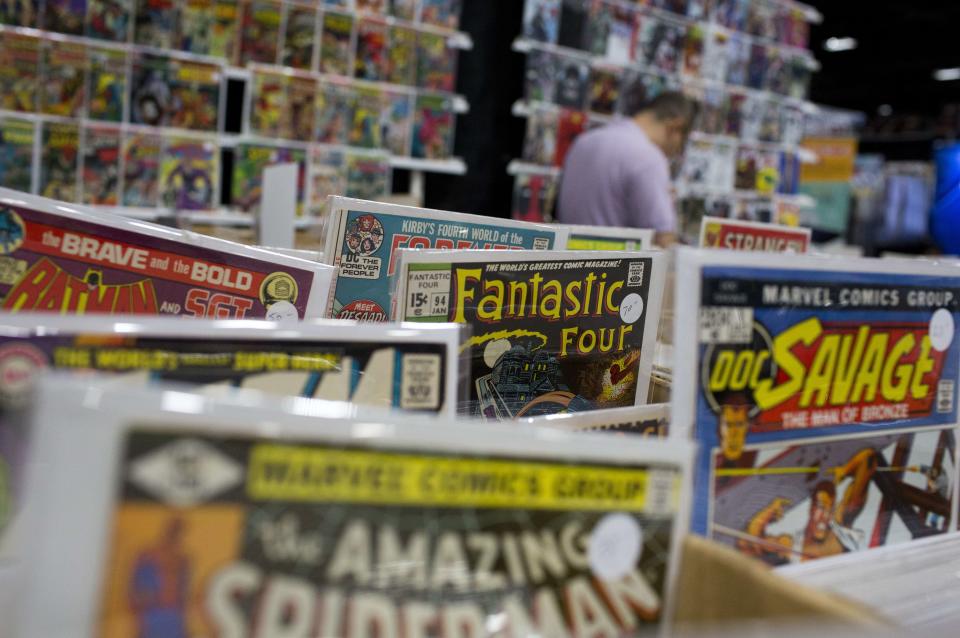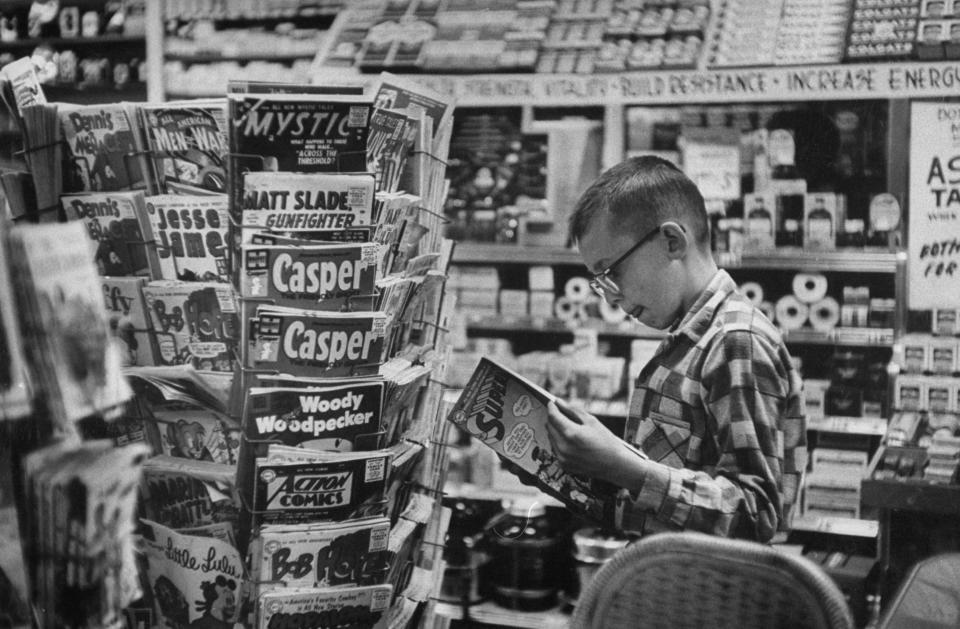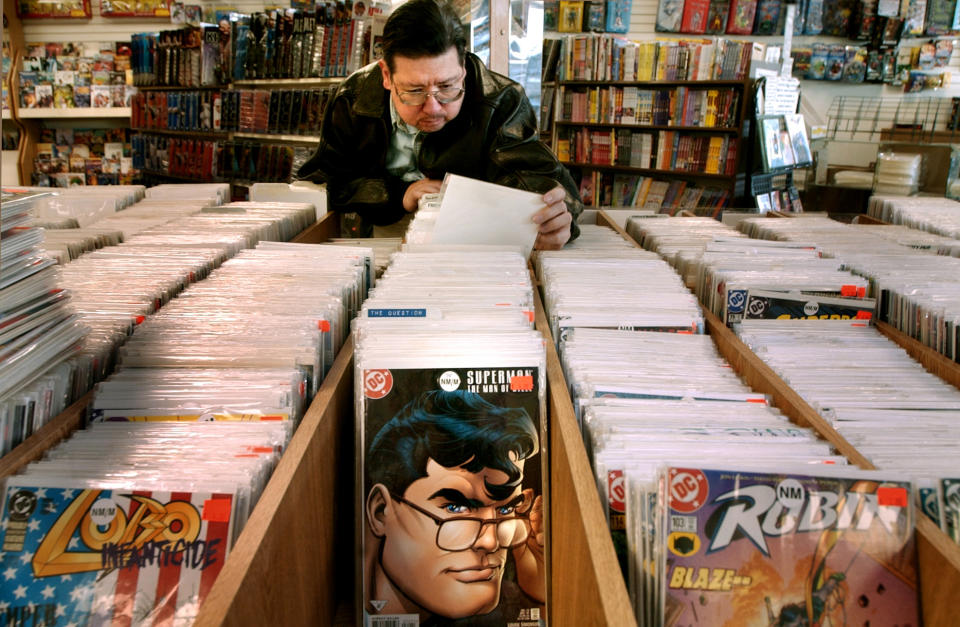Engadget has been testing and reviewing consumer tech since 2004. Our stories may include affiliate links; if you buy something through a link, we may earn a commission. Read more about how we evaluate products.
The comic industry would rather grind to a halt than go digital
ComicHub has a plan to get you single issues, though.
Wednesday is usually New Comic Book Day but, with everyone on lockdown due to coronavirus, this week’s selection was a little light. The main distributor, Diamond, ceased shipments both to and from its warehouse — a seemingly logical move given that many stores are shuttered anyway. Less logical is that, unlike literally every other media industry, the product wasn’t simply released digitally to consumers stuck at home. Instead, the entire comics world is on hold.
On a normal Wednesday, new books from companies like Marvel and DC would get a simultaneous physical and digital release, at the same price. Sometimes the physical copies even come with a free digital code. The whole idea being to avoid undercutting the brick and mortar stores with a more attractive digital product.

But what do you do when there are no brick and mortar stores to sell to? Apparently you just don't sell products at all. Anything that was scheduled for a physical release from Marvel, DC, Image and Dark Horse is on the back burner, either rescheduled for a later date or placed in limbo. Some digital-first titles like Freedom Fighters: Rise of a Nation will still be up for purchase on ComiXology and Kindle, but anyone looking forward to Batman #92 is out of luck until April 29th, at the earliest.
With Diamond's plans still up in the air, B2B software company ComicHub announced its own plan to deal with the stoppage, selling comics directly to customers. Readers can sign up and link their accounts to a physical store. When they purchase a comic, they'll get a digital copy instantly, but will also pick up the physical book at their local shop when it reopens. This will help to keep the stores afloat for now.

It's definitely a stop-gap solution for a business that hasn't embraced digital distribution in the way other industries have. And it's not even like those other media have ceased sending out physical products — you can still buy a copy of Animal Crossing: New Horizons from Best Buy or GameStop. Heck, there are mail-order comic sites out there, like Mile High, Midtown Comics and Discount Comic Book Service, that will ship stuff directly to your home.
However, many readers will tell you that comic shops are an integral part of the experience. I have fond memories of heading to the store down the street from my high school every Wednesday. I know the names of my "comic guys" and am even friends with a few of them on Facebook. While there are some bad apples out there akin to The Simpsons' Comic Book Guy, there are plenty of great shops out there, too.
But all those shops, both good and bad, hold an outsized amount of power because of the way the industry has developed over the past 50 years.

For their first few decades, comics were distributed and sold through newsstands alongside newspapers and magazines. This made sense given that they were considered periodicals. Unsold newsstand products could be sold back to the distributor, and that included comics, which is one of the things that makes old issues so rare. If you missed an issue, you were SOL.
This is one of the reasons comic shops started to spring up during the '70s. People wanted to buy and sell back issues. People also wanted to be sure they could get the new titles they liked; newsstands often had to take what they were sent and didn't have a lot of options. Retailers approached comics publishers to ask if they could just buy comics directly. The companies were totally on board with this direct market, especially since they could make the comic shops eat the cost of unsold stock by making the issues non-returnable.

This arrangement worked out pretty well for the next two decades, but it hit a snag in the '90s when Marvel Comics bought Heroes World, a comics distributor. Marvel gave its new subsidiary exclusive rights to distribute its product. This caused a bit of a panic as retailers no longer got the same discounts, and rival publishers started signing their own deals with distributors. Shops collapsed and so did most of the distributors, leaving Diamond as the only big one left. This is why one company shutting down operations has had such an outsized impact.
Between the Diamond stoppage and so many stores shutting their doors, it makes sense that many people are predicting that "comics are dead." Comics and the shops that sell them share a long history, which has created a strong sense of camaraderie. The direct market helped mold the biggest four companies — DC, Marvel, Image and Dark Horse — and created the culture around them, too. The stores were what helped Marvel stay afloat when it was in trouble after a string of bad decisions in the '90s and '00s. Retailers and publishers mingle socially all the time as well, at conventions and retailer summits. It's not just business at this point, it's personal. The comics industry is built on loyalty.

If comics were to fully embrace digital, it would mean cutting retailers out. It would mean cutting their friends and supporters out. In the most simplistic terms, it feels like a betrayal — and no one wants to be the villain. Except that, by refusing to play the villain to their business partners, they're abandoning their customers. And if they're not serving their customers at all then there's no money coming in, and those stores might go under anyway.
Eventually the companies will have to make a decision. Their employees have bills to pay, after all. With Marvel and DC both owned by huge corporate conglomerates, there's no danger of either company dying. But other publishers might not be so lucky. Creators might just take their talents to ComiXology or Kickstarter. And there will still be comic shops. After all, we thought independent bookstores were on their way out a decade ago and yet their numbers have actually increased 40 percent since then, with almost 2,500 shops in the United States now. Comic shops can make a comeback too; they just have to stop acting like it's still 1975.



